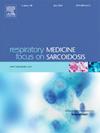Comparing adsorptive blood purification modalities for sepsis patients: A systematic review and network meta-analysis
IF 3.5
3区 医学
Q2 CARDIAC & CARDIOVASCULAR SYSTEMS
引用次数: 0
Abstract
Purpose
Hemoadsorption is a promising therapeutic modality for sepsis, however, the most effective approach is unknown. This meta-analysis aimed to compare the efficacy of different adsorptive blood purification (ABP) modalities in patients with sepsis.
Materials and methods
Randomized controlled trials (RCTs) investigating the clinical efficacy of ABP modalities in patients with sepsis were retrieved from English databases from inception up to October 14, 2024. The data were analyzed using Stata15 and R software. Quality assessment and publication bias were assessed using the Cochrane Risk of Bias Assessment Tool and funnel plots, respectively. The outcomes of the meta-analysis were hospital mortality, oxygenation index, ICU stay days, and blood lactate concentration.
Results
A total of 47 RCTs were identified, comprising 9 ABP modalities. In terms of cumulative ranking probability, the HA330 modality achieved the highest reduction in hospital mortality (99.5 %) and ICU stay days (97.2 %), whereas CPFA showed the highest reduction in oxygenation index (94.9 %) and oXiris had the highest reduction in lactate (95.7 %).
Conclusions
HA330 and PMX showed superior overall efficacy in sepsis patients compared with other modalities, although there was potential heterogeneity. However, further RCTs with large samples are advocated to test new approaches of hemosorption and validate the present findings.
求助全文
约1分钟内获得全文
求助全文
来源期刊

Respiratory medicine
医学-呼吸系统
CiteScore
7.50
自引率
0.00%
发文量
199
审稿时长
38 days
期刊介绍:
Respiratory Medicine is an internationally-renowned journal devoted to the rapid publication of clinically-relevant respiratory medicine research. It combines cutting-edge original research with state-of-the-art reviews dealing with all aspects of respiratory diseases and therapeutic interventions. Topics include adult and paediatric medicine, epidemiology, immunology and cell biology, physiology, occupational disorders, and the role of allergens and pollutants.
Respiratory Medicine is increasingly the journal of choice for publication of phased trial work, commenting on effectiveness, dosage and methods of action.
 求助内容:
求助内容: 应助结果提醒方式:
应助结果提醒方式:


